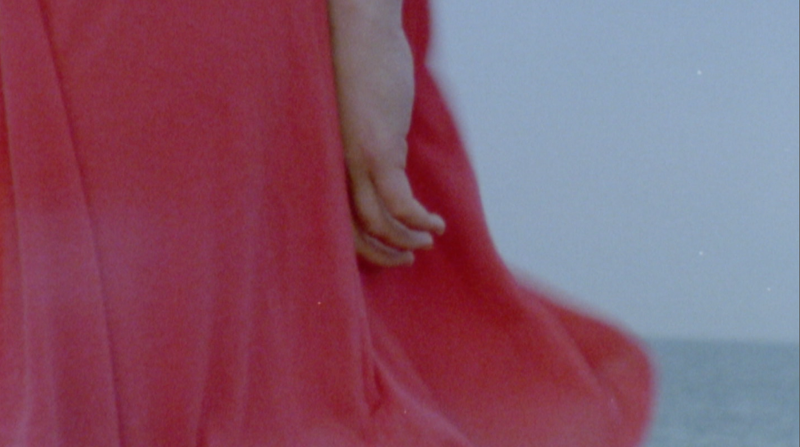Allah Is a Stranger (2016, working title, work in progress)
This film is a participatory record of daily lives of residents from a local care home in Sefrou (Morocco). As Fatima E., a Berber woman narrates traumatic events from her life to the camera, her narrative is meshed with lives of other residents of the home, many of whom documented their daily victories and struggles through disposable cameras.
Black Bile Chronicles 1 (2020)
A response to Albrecht Dürer’s Melencolia whereby ominous cinegrams of his print intercut, like cascading razors, with an isolated woman’s fraught actions and, more particularly, inactions – evoking a cathartic rhythm of repression and reconciliation.
Dissident Archives (2017 - 2019, working title, work in progress)
Set in Sukhum, Abkhazia, citizens’ dreams, familial histories and scripted narratives are performed by the locals to produce a disquieting reflection on the nature of loss, global politics and failed scientific visions. At times oracular, this moving image piece is like a reverie, in which the sense of time is disrupted; ominous sounds and impalpable images point to the impossible, taxidermic future that is all but free from the ghosts of the past. The perilous Black Sea appears in the film as a premonition of the future of things past, moving but somehow never able to progress. Marrying fact with fiction, this film brings out tensions and potentialities between the artistic, scientific and socio-political imaginary.
I Think You Should Come to America (2017, USA/UK/Poland)
In I Think You Should Come to America the correspondence between two young and naïve penfriends serves as a vehicle to explore the dangers of seeing cultures different from our own as ‘other.’ Here a young Polish woman (myself), coming of age in the dying embers of Communist Poland, seeks escape in the re-imagined romance of the Native American life, through her correspondence with an incarcerated young Native American.
Batum (2016, UK/Georgia)
Batum takes as its starting point my experience of near drowning in the Black Sea of Batumi, Georgia. As such, the film is induced with a desire for an auto-ethnographical self-interrogation. Images that feature in the film are a constellation of personal and prosthetic memories, acquired through historical and cultural knowledge as exemplified by the poems of Osip Mandelstam and Joseph Stalin, among other cultural tropes.
Fluchtpunkt (2015, UK)
Many beliefs and cultures perceive circle as a pure, divine shape. Da Vinci’s Vitruvian Man, positioned in a circle, symbolises perfect proportions. In Fluchtpunkt, the recurring and accidental circular patterns pervade the out-of-date film. They reinforce the ironic take on anthropocentrism as seen through the silently observed Stutthof concentration camp. Fluchtpunkt takes as its starting point traumatic occurrences in my family history to explore an auto-ethnographic impulse through a detached approach to filming.
Rehearsal (2015, UK)
Based on David Foster Wallace's short story ‘Signifying Nothing’ (2001), Rehearsal aims to examine the complex nuances of his literary language. Foster Wallace’s use of repetition, his strong sense of the ambiguous and absurd, as well as the intricacy of his American jargon appear even more visible when rehearsed by a Bulgarian theatre actor. Thus Rehearsal is therefore also a portrayal of a performer at work. Foster Wallace’s story is used here as pretext to portray the elusive nature of personal memory of a (possibly made up) traumatic event.
In the Same Room (2014, UK)
Non-human creatures occupy human spaces. The disconcerting atmosphere is achieved here largely through Timothy Nelson's carefully orchestrated sound.







